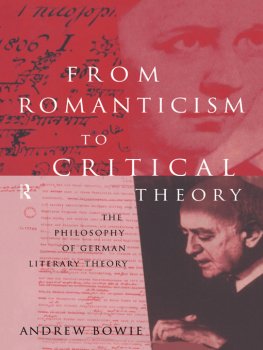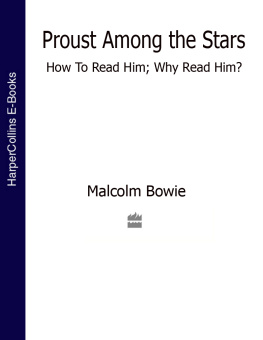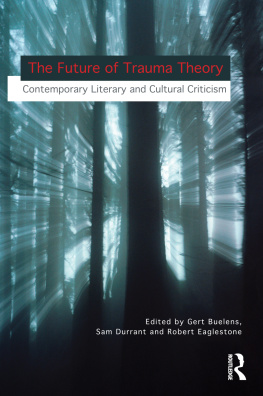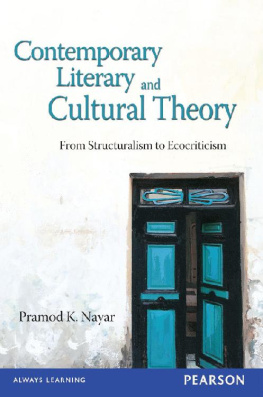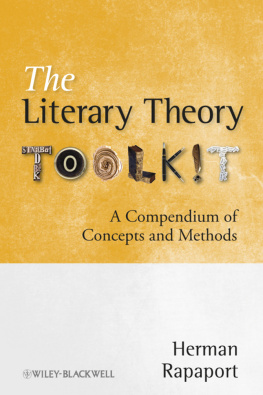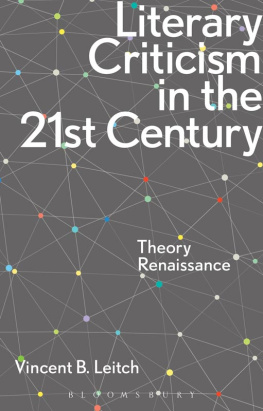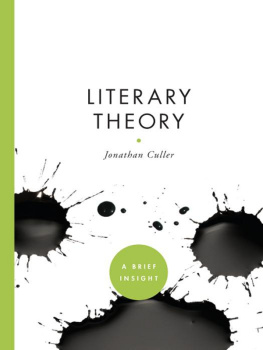Introduction
Renewing the theoretical canon
THE ROOTS OF LITERARY THEORY
The history of worries about the point of the study of literature, and about how to establish the meaning of literary texts, is a very long one indeed:
PROTAGORAS: In my view, Socrates, the most important part of a mans education is to become an authority on poetry. This means being able to criticise the good and bad points of a poem with understanding, to know how to distinguish them, and give ones reasons when asked. (Plato, Protagoras 339)
SOCRATES: Conversation about poetry reminds me too much of the wine parties of second-rate and commonplace people. No one can interrogate poets about what they say, and most often when they are introduced into the discussion some say the poets meaning is one thing and some another, for the topic is one on which nobody can produce a conclusive argument. (Plato, Protagoras 347)
Questions about poetry and literature are in fact inseparably connected to the history of Western philosophy, including, as we shall see, aspects of that philosophy, like analytical philosophy, which generally have little direct concern with literature. The starting point of this book is the emergence at a decisive point in the intellectual development of the modern world of theoretical concern with the status of the notion of literature. Indeed, I shall later argue that literature itself comes into existence in the period in question, because, prior to the growing dominance of non-theological conceptions of language in the second half of the eighteenth century, what it is that makes a particular text a literary text is not necessarily an issue of any wider significance. The rise of literature and the rise of philosophical aestheticsof a new philosophical concern with understanding the nature of artare inseparable phenomena, which are vitally connected to changes in conceptions of truth in modern thought. It is this latter aspect of the question of literature, which has been too often neglected in literary theory based on the assumptions of French structuralism and post-structuralism, that will be central to this book: hence my desire to give an account of the philosophy of German literary theory rather than just of German literary theory.
Why, though, should there have been such sustained world-wide attention to the theory of literature in recent years? No doubt the justified feeling that the academic study of literature can get rather too close to what goes on at the wine parties of second-rate and commonplace people was a factor in the rise of literary theory at the end of the 1960s. However, the motivations behind the differing positions in literary theory have been so diverse that it is difficult to see any common denominator between them. Motivations have ranged from the scientistic desire to prove that one can make empirically testable truth claims about literary texts of the same kind as can be made about physical phenomena (in certain versions of structuralism), to the desire to unmask class or gender ideology in even the most admired products of Western literary culture (in the most varying versions of Marxist and Feminist theory). Despite this diversity of aims most such positions have at least shared the need to establish stronger legitimations for literary study, either by reflecting upon just what it is trying to achieve in its existing forms or by suggesting that it ought to concentrate on doing something else. Literary theory is, then, usually bound up with the perceived need to legitimate the study of literature, or, perhaps more significantly, with the suggestion that such legitimation is now lacking. One of my major concerns here is to show how the analysis of some of the attempts to legitimate literary study necessarily takes us into key areas of modern philosophy. The need to integrate the disciplines of literary study and philosophy in new ways is, I propose, vital to the longer-term health of both disciplines: there is for most of us in the developed Western world no immediately important social and political point to the revelation of the ideological aspects of major bourgeois literary works, and it is time that radical critics finally admitted this fact. Important work needs to be done, though, in showing how issues which emerge in relation to literature are, when connected to important developments in contemporary philosophy, germane to issues concerning our self-understanding which do potentially play an important role in engaging with virtually any area of modern society.
Despite the enormous success and influence of the literary theory which began in the late 1960s there is now a growing suspicion, even among some of its practitioners, that literary theory itself is in crisis. The signs of this suspicion have, of course, been eagerly seized upon by those who never engaged in literary theory in the first place. Despite the threadbare nature of the arguments of many traditionalist opponents of literary theory, it is becoming clear that some of the more ambitious claims for literary theory are in need of revision and that some of the more extreme versions of post-structuralist theory in particular cannot be defended. This book is intended, then, in the light of the decline of the euphoria that inevitably follows any fundamental reorientation in an academic discipline, to provide new impetus for theoretical work in all areas of the humanities by changing the focus of the theoretical debate in the direction of a more informed philosophical consideration of the issues. It is also intended to show that the extreme form of the opposition to literary theory is simply mistaken, because the essential bases for such reflection have been with us at least since the German Romantics and form part of mainstream philosophy. In this respect the very fact that literary theory has, because of its deeper historical roots, not been quite such a controversial issue in Germany as it has been in Britain, France, and the USA, should give pause for thought to those who are so implacably opposed to it. This difference in perception also has to do with the differing perceptions of the role and nature of philosophy in the intellectual culture of these countries.
Why, then, write a book which focuses on the German tradition of reflection upon literature? A further obvious legitimation for such a book is the fact that many people in German studies, especially in Great Britain, have failed to engage with French and American literary theory, let alone with German theory. Many students in German studies will read some Immanuel Kant or some Friedrich Schlegel, or even some Walter Benjamin, but there is too little awareness that the theoretical issues with which these thinkers were engaged are very close to the issues that make certain eminent figures in German studies and other areas of the humanities so hot under the collar when they are attached to the name of Jacques Derrida. As we shall see, an apparently dead piece of the history of German ideas, like the Pantheism controversy which began in 1783, involves many of the questions that eventually lead both to post-structuralism and to some of the dilemmas of contemporary analytical philosophy. Rather than these issues being the product of a new fashion, then, they actually involve a history which goes back at least as far as the beginnings of German Romanticism. The importance of this tradition will also be shown from a different direction: approaches in analytical philosophy to questions of meaning have, until very recently, seemed very distant from questions posed by the tradition of German hermeneutic philosophy whose origins play a major role in what I have to say here. The fact is, though, that some of the most interesting developments in contemporary American philosophy, in the work of Donald Davidson, Hilary Putnam, Richard Rorty and others, come remarkably close to aspects of a tradition which, with the exception of Kant, is never even mentioned by most analytical philosophers.

